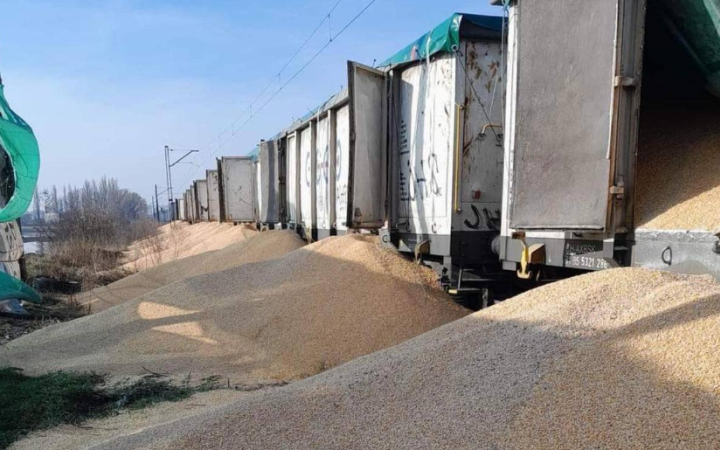In a major cave-in to Europe’s farming lobby, EU countries overnight agreed to impose restrictions on Ukrainian agricultural sales, dealing a significant blow to its exports, Politico reports, citing officials and diplomats.
This retreat ahead of this week’s EU leaders’ summit (for which farmers are descending on Brussels again) paves the way for a deal with the European Parliament today to partly roll back Kyiv’s trade benefits. That’s expected to result in a revenue loss of more than €1 billion a year for the war-struck country.
At last night’s meeting of the 27 government envoys, France came out in support of Poland, asking for a limit on imports of Ukrainian poultry, eggs, sugar and wheat, according to two people briefed on the discussion.
"Just as Macron stressed France’s no-holds-barred support for Ukraine, the pitchfork-wielding farmers have blown a hole into his “whatever it takes” soufflé," the newspaper notes.
The Belgian Council presidency and MEPs will meet this evening for negotiations on the new restrictions. Parliament has also asked for a lower ceiling at which the restrictions will kick in.
"Vladimir Putin can rely on European agri-food groups to do his lobbying for him. Russia’s full supermarket shelves — heaving with EU products — have been one of the regime’s go-to arguments to show Russia is winning the war," Politico adds.
This isn’t the first time the EU bowed to its agri sector when it comes to Russia’s war on Ukraine. While Russian-flagged ships are banned from EU ports, there’s an exemption for those carrying Russian fertilizers and pesticides. In previous decisions, the EU also rolled back asset freezes against Russian oligarchs involved in the agri-food trade
“The argument, back then, was that tougher restrictions on Russian fertilizers would lead to higher food prices in Europe. But that’s exactly what restrictions on imports from Ukraine will also do," the article says.








